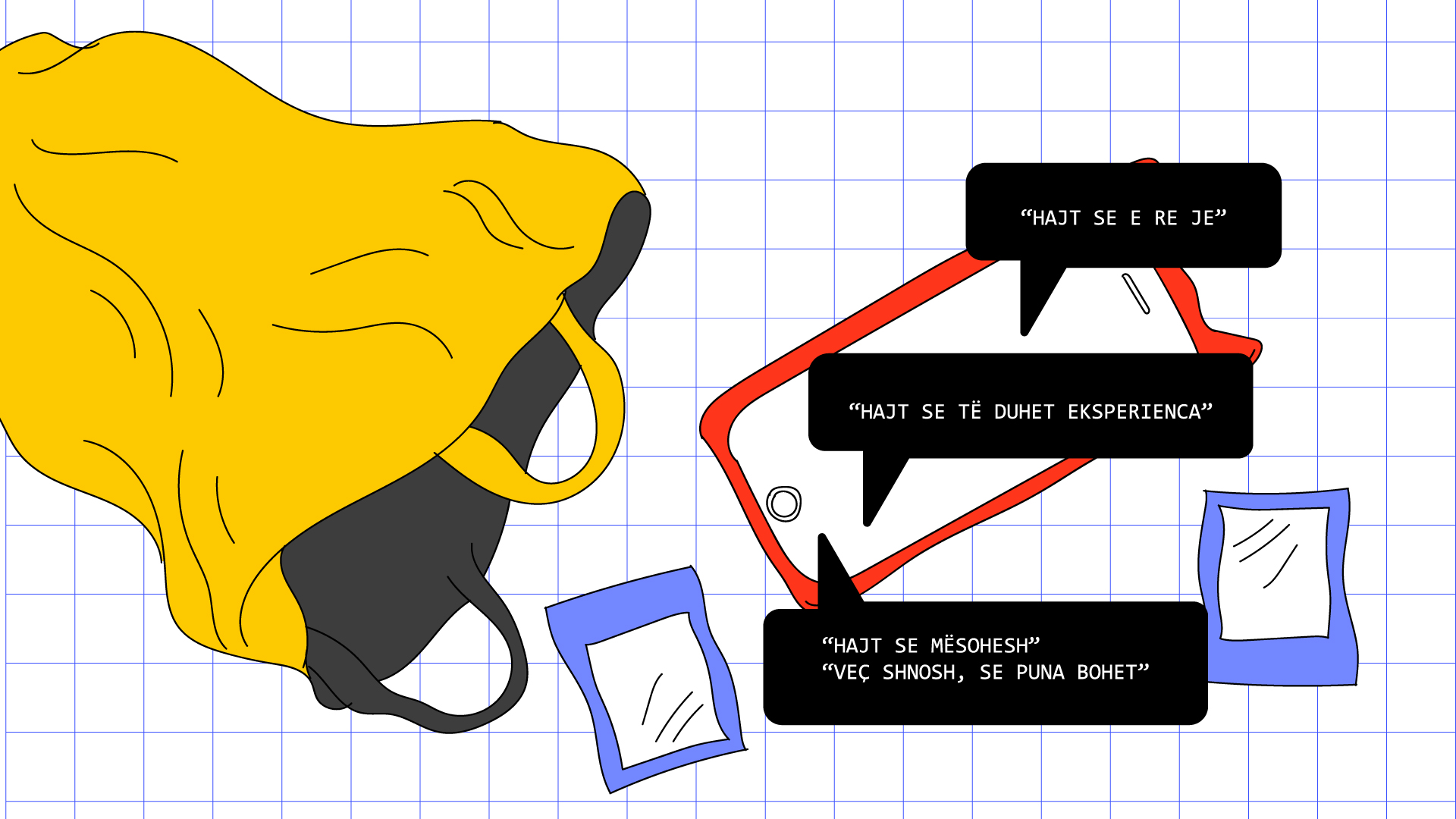
“Don’t worry, you’re still young,” “Never mind, you still need experience,” “Don’t worry because you’ll get used to it,” “Just be healthy, you’ll get a job one day.” I don’t doubt that we all heard those phrases when entering the workforce.
My first job started in September 2014, when I was 20 years old and still attending design school. I worked as an assistant in a graphic design studio. I wasn’t paid that much but it was just a first career step.
I always set my alarm early to make sure I stuck to the schedule and left a good impression as a new employee. My daily routine was altered completely. I changed my bedtime schedule and I could no longer go on unexpected outings with my friends, everything now had to be planned in advance. Everything revolved around the thought “I have work tomorrow.” I have to admit, sometimes it became a good excuse to get me out of situations.
My first tasks were to assist with design requirements, other smaller daily designs as well as photo editing. I thought my initial enthusiasm would continue, but I was wrong. The enthusiasm I had started to wear off in the very first few days. The realities of the workplace quickly ruined the wishful image that I created in my head during my studies. It was the volume and pressure of work, some of which was beyond my capabilities that did it. It was the toxic environment, colleagues trying to be superior to each other and the way male co-workers would look at younger women employees as sexual objects.
This situation continued for three or four months. Finally, I reached the point where I asked myself “Is this what I really want or is the company not meeting my requirements?” These questions intensified when I learned about the importance of contracts, insurance and annual leave in the workplace.
And in my first “real” job, these were absent. My employers did not pay my insurance, I had no employment contract and annual leave was just a couple of days, just so they could say there was annual leave. Maybe I didn’t know about labor law. But now, when I think about it, it was nothing more than exploitation of the employee’s fragility by the employer, who knew the laws very well. That’s how it suited them.
There have also been strange and embarrassing moments. I remember the first time I showed my work in the streets as billboards or advertisements and the emotions I felt when showing them to people. I didn’t know if what I was feeling was fear to hear their thoughts or if they would discover a mistake. I always bear in mind a saying that a professor of mine used to tell us almost every week: “The whole world sees the designer’s mistake.” There were also embarrassing situations when it came to working with clients, where their first impression was that I was the “new one,” and they did not take me seriously knowing that this “new” employee was doing the work.
Moreover, I started thinking and wondering about how the work I completed for the company related to me as an author. How does copyright work? Who gets these credits, and do I have the right to publish these works as a part of a portfolio? In an ideal situation, these answers would be found in my employment contract. But I didn’t have one.
I quit that job after 10 months. But the pressure and bad taste that my first work experience left with me seems to have stayed, especially the thought that I would find the same environment and treatment in my next role.
I can complain as much as I want about my first work experience, but I can’t deny what this period has taught me. It taught me that I have to confront my surroundings and take advantage of every situation.
